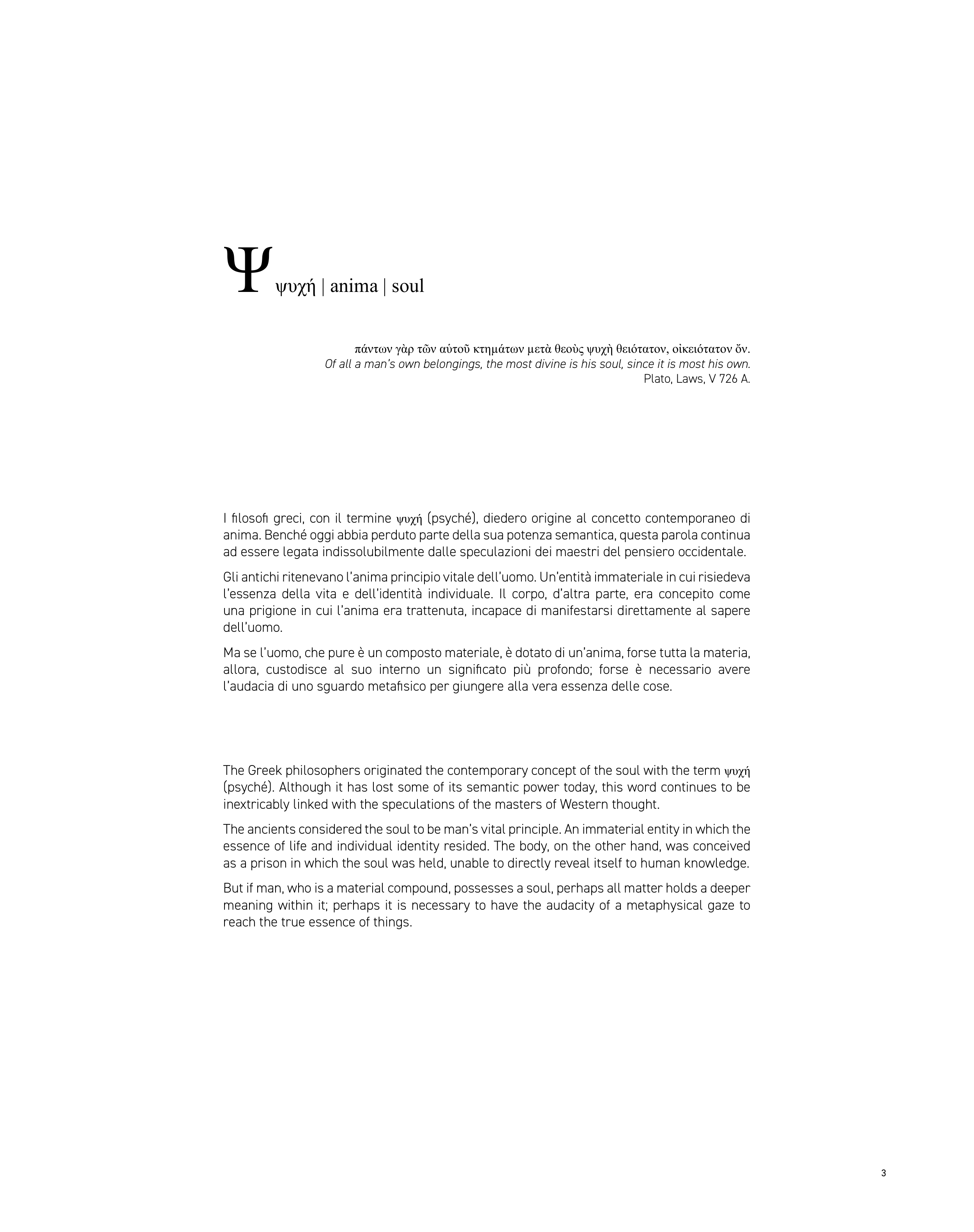3
Ψ ψυχή | anima | soul
πάντων γὰρ τῶν αὑτοῦ κτηµάτων µετὰ θεοὺς ψυχὴ θειότατον, οἰκειότατον ὄν.
Of all a man’s own belongings, the most divine is his soul, since it is most his own.
Plato, Laws, V 726 A.
I filosofi greci, con il termine ψυχή (psyché), diedero origine al concetto contemporaneo di
anima. Benché oggi abbia perduto parte della sua potenza semantica, questa parola continua
ad essere legata indissolubilmente dalle speculazioni dei maestri del pensiero occidentale.
Gli antichi ritenevano l’anima principio vitale dell’uomo. Un’entità immateriale in cui risiedeva
l’essenza della vita e dell’identità individuale. Il corpo, d’altra parte, era concepito come
una prigione in cui l’anima era trattenuta, incapace di manifestarsi direttamente al sapere
dell’uomo.
Ma se l’uomo, che pure è un composto materiale, è dotato di un’anima, forse tutta la materia,
allora, custodisce al suo interno un significato più profondo; forse è necessario avere
l’audacia di uno sguardo metafisico per giungere alla vera essenza delle cose.
The Greek philosophers originated the contemporary concept of the soul with the term ψυχή
(psyché). Although it has lost some of its semantic power today, this word continues to be
inextricably linked with the speculations of the masters of Western thought.
The ancients considered the soul to be man’s vital principle. An immaterial entity in which the
essence of life and individual identity resided. The body, on the other hand, was conceived
as a prison in which the soul was held, unable to directly reveal itself to human knowledge.
But if man, who is a material compound, possesses a soul, perhaps all matter holds a deeper
meaning within it; perhaps it is necessary to have the audacity of a metaphysical gaze to
reach the true essence of things.







